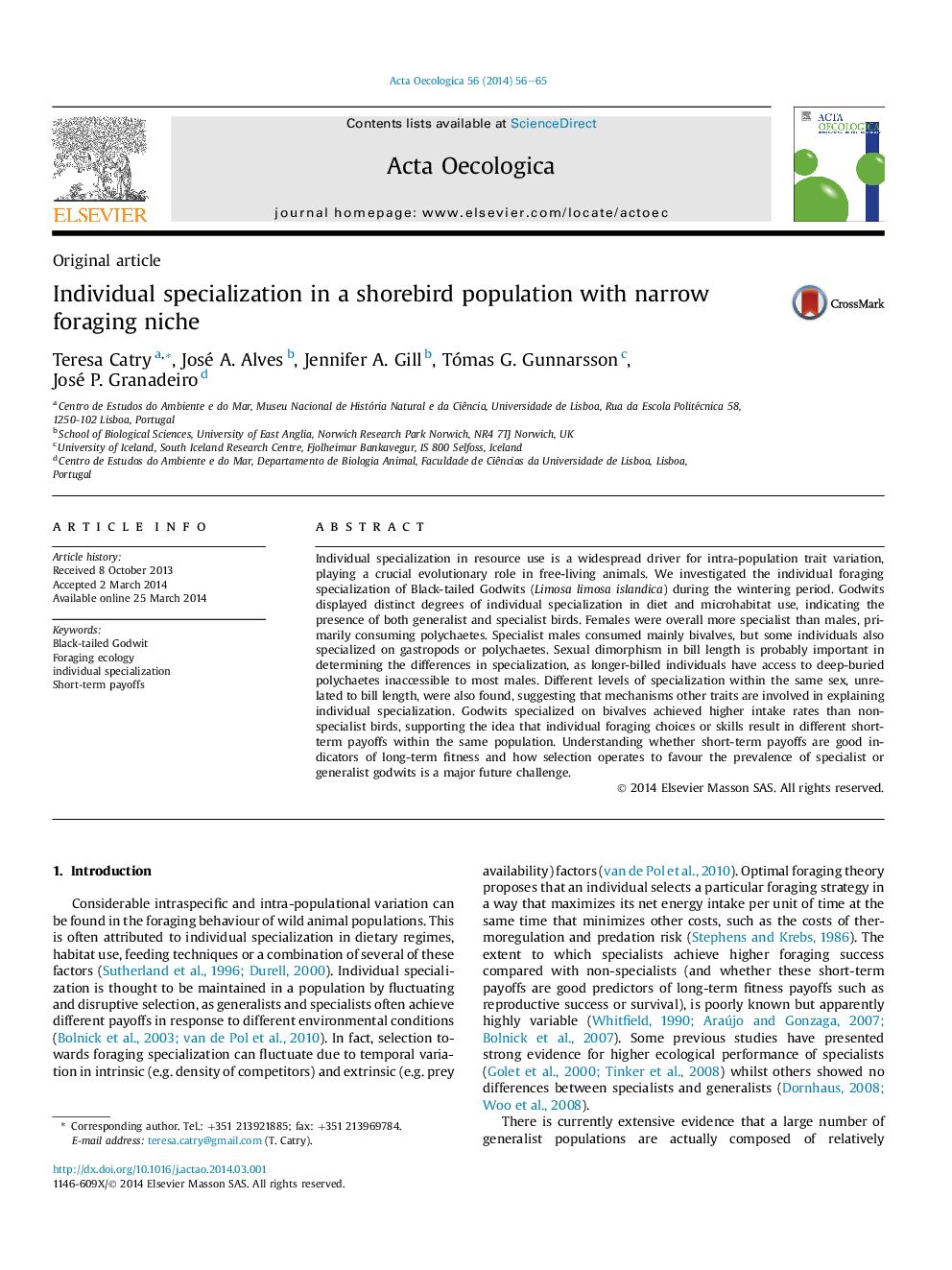| Article ID | Journal | Published Year | Pages | File Type |
|---|---|---|---|---|
| 4381027 | Acta Oecologica | 2014 | 10 Pages |
Abstract
Individual specialization in resource use is a widespread driver for intra-population trait variation, playing a crucial evolutionary role in free-living animals. We investigated the individual foraging specialization of Black-tailed Godwits (Limosa limosa islandica) during the wintering period. Godwits displayed distinct degrees of individual specialization in diet and microhabitat use, indicating the presence of both generalist and specialist birds. Females were overall more specialist than males, primarily consuming polychaetes. Specialist males consumed mainly bivalves, but some individuals also specialized on gastropods or polychaetes. Sexual dimorphism in bill length is probably important in determining the differences in specialization, as longer-billed individuals have access to deep-buried polychaetes inaccessible to most males. Different levels of specialization within the same sex, unrelated to bill length, were also found, suggesting that mechanisms other traits are involved in explaining individual specialization. Godwits specialized on bivalves achieved higher intake rates than non-specialist birds, supporting the idea that individual foraging choices or skills result in different short-term payoffs within the same population. Understanding whether short-term payoffs are good indicators of long-term fitness and how selection operates to favour the prevalence of specialist or generalist godwits is a major future challenge.
Related Topics
Life Sciences
Agricultural and Biological Sciences
Ecology, Evolution, Behavior and Systematics
Authors
Teresa Catry, José A. Alves, Jennifer A. Gill, Tómas G. Gunnarsson, José P. Granadeiro,
